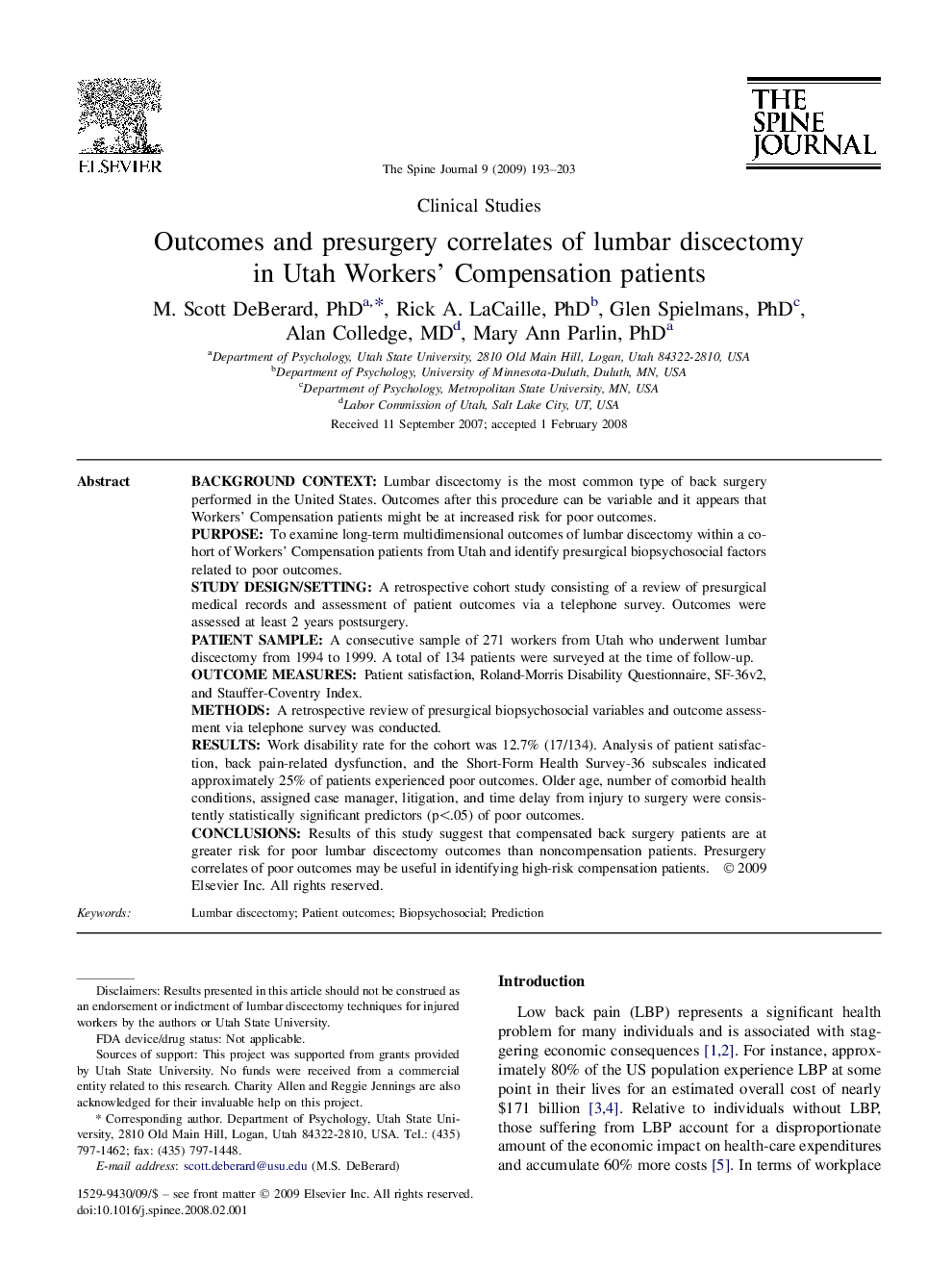| Article ID | Journal | Published Year | Pages | File Type |
|---|---|---|---|---|
| 4099675 | The Spine Journal | 2009 | 11 Pages |
Background contextLumbar discectomy is the most common type of back surgery performed in the United States. Outcomes after this procedure can be variable and it appears that Workers' Compensation patients might be at increased risk for poor outcomes.PurposeTo examine long-term multidimensional outcomes of lumbar discectomy within a cohort of Workers' Compensation patients from Utah and identify presurgical biopsychosocial factors related to poor outcomes.Study design/settingA retrospective cohort study consisting of a review of presurgical medical records and assessment of patient outcomes via a telephone survey. Outcomes were assessed at least 2 years postsurgery.Patient sampleA consecutive sample of 271 workers from Utah who underwent lumbar discectomy from 1994 to 1999. A total of 134 patients were surveyed at the time of follow-up.Outcome measuresPatient satisfaction, Roland-Morris Disability Questionnaire, SF-36v2, and Stauffer-Coventry Index.MethodsA retrospective review of presurgical biopsychosocial variables and outcome assessment via telephone survey was conducted.ResultsWork disability rate for the cohort was 12.7% (17/134). Analysis of patient satisfaction, back pain-related dysfunction, and the Short-Form Health Survey-36 subscales indicated approximately 25% of patients experienced poor outcomes. Older age, number of comorbid health conditions, assigned case manager, litigation, and time delay from injury to surgery were consistently statistically significant predictors (p<.05) of poor outcomes.ConclusionsResults of this study suggest that compensated back surgery patients are at greater risk for poor lumbar discectomy outcomes than noncompensation patients. Presurgery correlates of poor outcomes may be useful in identifying high-risk compensation patients.
